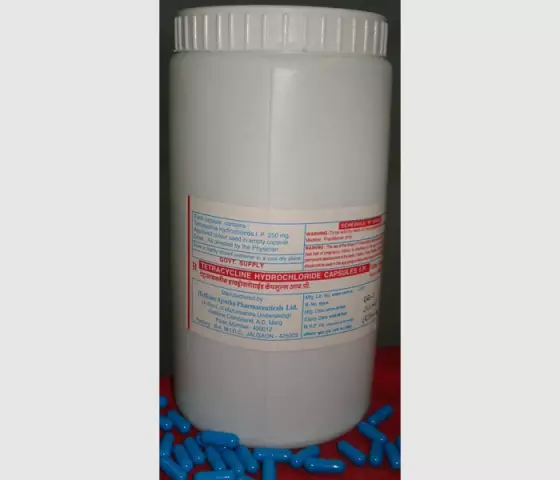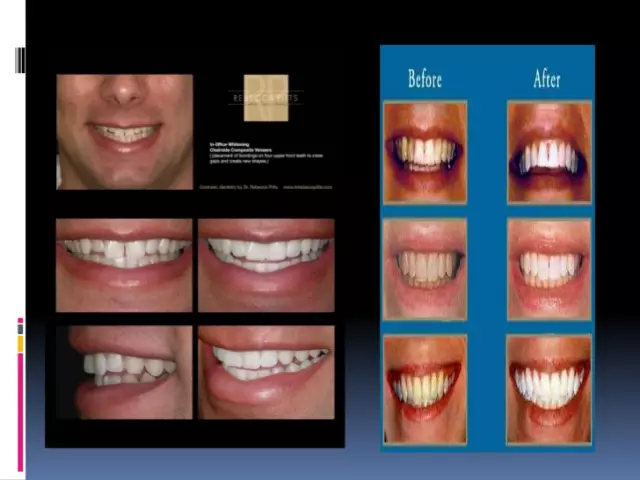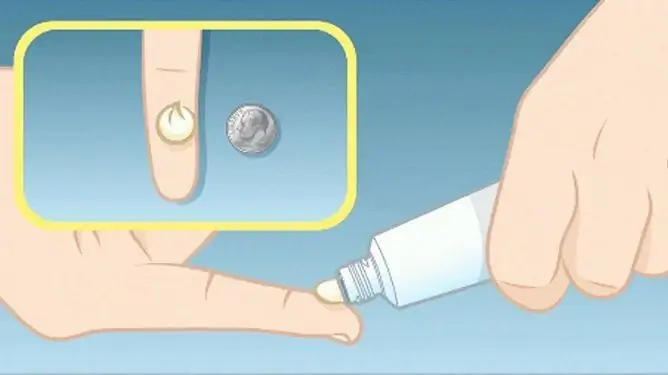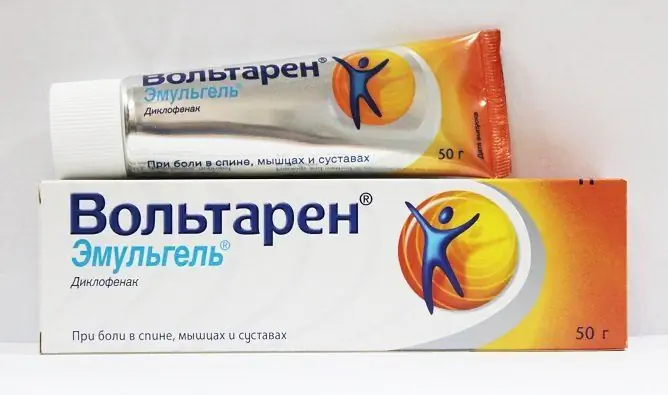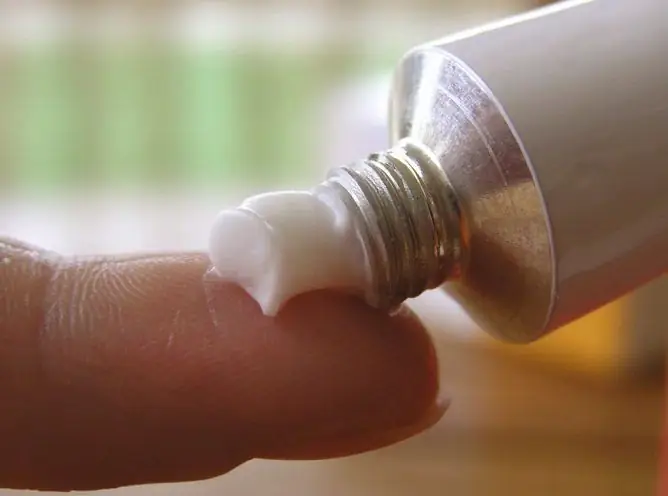- Author Rachel Wainwright wainwright@abchealthonline.com.
- Public 2023-12-15 07:39.
- Last modified 2025-11-02 20:14.
Acyclovir-Akrikhin
Acyclovir-Akrikhin: instructions for use and reviews
- 1. Release form and composition
- 2. Pharmacological properties
- 3. Indications for use
- 4. Contraindications
- 5. Method of application and dosage
- 6. Side effects
- 7. Overdose
- 8. Special instructions
- 9. Application during pregnancy and lactation
- 10. Use in childhood
- 11. In case of impaired renal function
- 12. Use in the elderly
- 13. Drug interactions
- 14. Analogs
- 15. Terms and conditions of storage
- 16. Terms of dispensing from pharmacies
- 17. Reviews
- 18. Price in pharmacies
Latin name: Aciclovir-Akrikhin
ATX code: J05AB01
Active ingredient: Acyclovir (Aciclovir)
Manufacturer: Chemical and Pharmaceutical Plant AKRIKHIN, JSC (Russia)
Description and photo update: 2018-22-10
Prices in pharmacies: from 24 rubles.
Buy

Acyclovir-Akrikhin is an antiviral drug.
Release form and composition
Dosage forms of Acyclovir-Akrikhin:
- tablets: flat-cylindrical, with a chamfer and dividing line, blue with light and dark blue blotches, white spots are allowed (10 pcs. in a blister strip, 2 packs in a cardboard box);
- ointment for external use 5%: a mass of almost white or white, the presence of a characteristic odor is possible (2 g, 3 g or 5 g in an aluminum tube, in a cardboard box 1 tube).
1 tablet contains:
- active substance: acyclovir - 0.2 g or 0.4 g;
- auxiliary components: sodium carboxymethyl starch, povidone, microcrystalline cellulose, indigo carmine, magnesium stearate, purified water.
100 g of ointment contains:
- active substance: acyclovir - 5 g;
- auxiliary components: vaseline oil, petrolatum, propylene glycol, emulsion wax, polyethylene oxide 1500 (macrogol), purified water.
Pharmacological properties
Pharmacodynamics
Acyclovir, being a synthetic analogue of an acyclic purine nucleoside, has a highly selective effect on herpes viruses. The process of phosphorylation and conversion to acyclovir monophosphate occurs in cells containing viral thymidine kinase. Monophosphate is converted under the influence of guanylate cyclase into acyclovir diphosphate, then under the action of several cellular enzymes into triphosphate.
Acyclovir triphosphate blocks the synthesis of viral DNA (deoxyribonucleic acid), placing itself in its chain and inhibiting viral DNA polymerase. Sufficiently high selectivity and specificity of action determines its predominant accumulation in cells affected by the herpes virus.
Shows high activity against the Varicella zoster virus, which causes chickenpox and shingles, Herpes simplex virus (types 1 and 2), Epstein-Barr virus. Moderately active against cytomegalovirus.
In the treatment of herpes, it reduces the risk of cutaneous dissemination and visceral complications, prevents the formation of new elements, accelerates the formation of crusts, in the acute phase of herpes zoster - reduces pain.
Pharmacokinetics
When taking tablets, the bioavailability of acyclovir can be 15-30%. The maximum concentration (C max) in blood plasma after taking the drug in a daily dose of 1 g reaches 0.7 μg / ml after 1.5-2 hours.
Plasma protein binding is from 9 to 33%. Good ability to penetrate into all tissues and organs allows reaching a concentration in the cerebrospinal fluid corresponding to 50% of the level in blood plasma. Penetrates the blood-brain and placental barriers, excreted in breast milk.
It is metabolized in the liver, forming 9-carboxymethoxymethylguanine, a pharmacologically inactive metabolite.
T 1/2 (half-life) when taken orally - 2-3 hours. Through the kidneys, about 84% of the drug is excreted unchanged and about 14% in the form of a metabolite. Up to 2% is excreted through the gastrointestinal tract (GIT). In the air exhaled by the patient, trace amounts of acyclovir are determined.
With severe renal failure, T 1/2 increases to 20 hours, with hemodialysis the half-life is 5.7 hours. In this case, the level of concentration of acyclovir in the patient's blood plasma decreases to 60% of the initial value.
With external application of the Acyclovir-Akrikhin ointment, absorption on the affected area of the body skin is moderate, the concentration of acyclovir in the blood serum with normal renal function is up to 0.28 μg / ml, with chronic renal failure - up to 0.78 μg / ml.
Up to 9.4% of the daily dose of the ointment is excreted by the kidneys.
Indications for use
Pills
- genital herpes and other primary and secondary infections of the mucous membranes and skin caused by Herpes simplex viruses (type 1 and 2);
- primary and recurrent infections of the Varicella zoster virus (shingles, chickenpox);
- severe immunodeficiency (as part of complex therapy) after bone marrow transplantation and in HIV infection in the AIDS stage, early clinical manifestations and a detailed clinical picture;
- prevention of exacerbations of recurrent infections of the Herpes simplex virus (type 1 and 2) in patients with normal immune status;
- prevention of primary and recurrent infections of the Herpes simplex virus (type 1 and 2) in patients with immunodeficiency.
Ointment for external use 5%
- genital herpes;
- skin infections caused by Herpes simplex virus types 1 and 2;
- chicken pox;
- shingles.
Contraindications
- lactation period;
- breast-feeding;
- hypersensitivity to acyclovir, ganciclovir, valacyclovir and excipients of the drug.
Care must be taken when using Acyclovir-Akrikhin in patients with dehydration, renal failure.
In addition, the appointment of the drug in the form of tablets is contraindicated for children under the age of 3 years.
Caution should be given to taking Acyclovir-Akrikhin orally in case of neurological disorders or neurological reactions to the intake of cytotoxic agents (including history), as well as in elderly patients.
Instructions for use of Acyclovir-Akrikhin: method and dosage
Pills
Acyclovir-Akrikhin tablets are taken orally, during or immediately after a meal, with a sufficient amount of water.
The doctor prescribes the dosage regimen individually, taking into account the clinical indications and the severity of the disease.
Recommended dosage:
- infections of the mucous membranes and skin caused by the Herpes simplex virus (type 1 and 2): adults - 0.2 g 5 times a day (every 4 hours). The duration of the course is 5 days, in the treatment of genital herpes - 10 days. If necessary, the treatment period can be extended;
- severe immunodeficiency in patients after bone marrow transplantation and with HIV infection: as part of complex therapy - 0.4 g 5 times a day;
- prevention of recurrent infections of the Herpes simplex virus (type 1 and 2) in patients with normal immunity: adults - 0.2 g 4 times a day every 6 hours. Long-term treatment, from 6 to 12 months;
- prevention of infection with the Herpes simplex virus (type 1 and 2) in patients with immunodeficiency: adults - 0.2 g 4 times a day (with an interval of 6 hours). In case of a serious condition, the dose is increased to the maximum - 0.4 g 5 times a day;
- shingles: adults and children - 0.8 g 5 times a day (during the day - every 4 hours, night interval - 8 hours) for 7-10 days;
- chickenpox: adults and children over 6 years old - 0.8 g 4 times a day; children aged 3-6 years - 0.4 g 4 times a day. For a more accurate determination of the individual dose, you can use the calculation - 0.02 g per 1 kg of patient weight. The course of treatment is 5 days.
In case of impaired renal function, it is necessary to adjust the dose and dosage regimen, taking into account the creatinine clearance (CC) value and the type of infection.
Ointment for external use 5%
Acyclovir-Akrikhin ointment is intended for external use. It should be applied with clean hands, or using a cotton swab, in a thin layer on the affected skin areas, capturing the border areas with them.
The procedures are carried out 5 times a day with an interval of 4 hours.
Treatment should be continued until a crust forms on the vesicles or until they are completely healed. On average, the course of therapy can be 5 days.
If there is no effect after 10 days of using the ointment, you should consult a doctor.
Side effects
Pills
- from the hematopoietic system: very rarely - leukopenia, thrombocytopenia, anemia;
- from the digestive system: diarrhea, abdominal pain, nausea, vomiting; rarely - a reversible increase in the activity of liver enzymes and the level of bilirubin;
- from the central nervous system: weakness, drowsiness, dizziness, headache, increased fatigue, confusion, paresthesia, decreased concentration, agitation, convulsions, hallucinations;
- from the urinary system: rarely - an increase in the concentration of creatinine and urea in the blood plasma; very rarely - acute renal failure;
- allergic reactions: pruritus, rash, urticaria, Lyell's syndrome, erythema multiforme exudative (including Stevens-Johnson syndrome), anaphylaxis, angioedema;
- others: fever, blurred vision, lymphadenopathy, myalgia, alopecia, peripheral edema.
Ointment for external use 5%
- dermatological reactions: hyperemia, dryness and peeling of the skin;
- others: possibly - allergic dermatitis; on contact with mucous membranes - burning sensation, inflammation.
Overdose
Symptoms: agitation, convulsions, coma, lethargy. If the concentration level of the accepted acyclovir exceeds 2.5 mg / ml, its precipitation in the renal tubules is possible.
Treatment: the appointment of symptomatic therapy.
Overdose symptoms while using the ointment have not been established.
special instructions
When taking pills, it is recommended to monitor kidney function by examining the blood for the content of urea and creatinine in the blood plasma.
During the period of treatment, the patient must drink a sufficient amount of liquid.
It should be borne in mind that with reduced immunity, prolonged treatment or repeated use of acyclovir can cause the patient to develop virus strains that are insensitive to the drug.
Since taking the drug does not prevent sexual transmission of herpes, it is recommended to avoid sexual intercourse or use barrier contraception during treatment, even if there are no clinical manifestations of the disease.
The maximum therapeutic effect is achieved if the application of the ointment is started from the moment the first signs of the disease appear, such as itching, tingling, burning, redness, and a feeling of tension.
Due to the possible development of pronounced local inflammation, Acyclovir-Akrikhin ointment cannot be applied to the mucous membranes of the eyes and oral cavity.
Influence on the ability to drive vehicles and complex mechanisms
During the period of taking the tablets, it is necessary with caution to perform potentially hazardous activities that require concentration of attention and a high speed of psychomotor reactions, including driving.
Application during pregnancy and lactation
According to the instructions, Acyclovir-Akrikhin is contraindicated during the gestation period.
The use of the drug is indicated only in a special case when the expected therapeutic effect of therapy for the mother exceeds the potential threat to the fetus.
Cannot be used while breastfeeding.
If necessary, the appointment of the drug during lactation, breastfeeding should be discontinued.
Pediatric use
The use of tablets in children under 3 years of age is contraindicated.
With impaired renal function
Both forms of Acyclovir-Akrikhin are used with caution in patients with renal failure.
When prescribing tablets to patients with impaired renal function, it is necessary to adjust the dose and dosage regimen, taking into account the creatinine clearance (CC) value and the type of infection. For the treatment of Herpes simplex infection in patients with CC less than 10 ml / min, 0.2 g should be prescribed 2 times a day with an interval of 12 hours.
When treating Varicella zoster infection and prescribing the drug to patients with severe immunodeficiency, a dose of 0.8 g is used as maintenance therapy: with CC 10-25 ml / min - 3 times a day (after 8 hours), with CC less than 10 ml / min - 2 once a day (after 12 hours).
Use in the elderly
In old age, Acyclovir-Akrikhin tablets should be used with caution.
Drug interactions
With the simultaneous use of Acyclovir-Akrikhin in the form of tablets:
- nephrotoxic drugs increase the risk of renal dysfunction;
- probenecid causes an increase in the mean T 1/2 and a decrease in acyclovir clearance.
The interaction of the ointment when combined with other drugs has not been identified.
With simultaneous administration with immunostimulants, an increase in the effect may be noted.
Analogs
Analogs of Acyclovir-Akrikhin are: Valacyclovir, Trivorin, Arviron, Valtrex, Ribavirin, Minaker, Rebetol, Vero-Ribavirin, Gerpferon, Acivir, Alpizarin, Viru-Merz, Oxolin, Hyporamine, Fladex.
Terms and conditions of storage
Keep out of the reach of children.
Store at temperatures up to 25 ° C, protected from light and moisture.
Shelf life: tablets - 4 years; ointment - 3 years.
Terms of dispensing from pharmacies
The tablets are prescription, and the ointment is over the counter.
Reviews about Acyclovir-Akrikhin
Reviews of Acyclovir-Akrikhin are only positive, indicating a higher effect of therapy with the simultaneous use of two forms of the drug.
Price for Acyclovir-Akrikhin in pharmacies
The price of Acyclovir-Akrikhin for 20 tablets at a dose of 0.2 g is approximately 52.5 rubles, at a dose of 0.4 g - 222 rubles; a tube containing 5 g of ointment can be bought for 26 rubles.
Acyclovir-Akrikhin: prices in online pharmacies
|
Drug name Price Pharmacy |
|
Acyclovir-Akrikhin 5% ointment for external use 5 g 1 pc. RUB 24 Buy |
|
Acyclovir-Akrikhin 5% ointment for external use 10 g 1 pc. 43 rbl. Buy |
|
Acyclovir-Akrikhin 200 mg tablets 20 pcs. RUB 49 Buy |
|
Acyclovir-Akrihin tablets 200mg 20 pcs. RUB 61 Buy |
|
Acyclovir-Akrikhin 400 mg tablets 20 pcs. 208 RUB Buy |

Anna Kozlova Medical journalist About the author
Education: Rostov State Medical University, specialty "General Medicine".
Information about the drug is generalized, provided for informational purposes only and does not replace the official instructions. Self-medication is hazardous to health!

